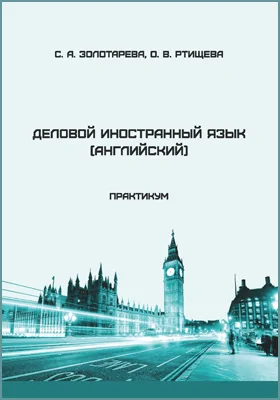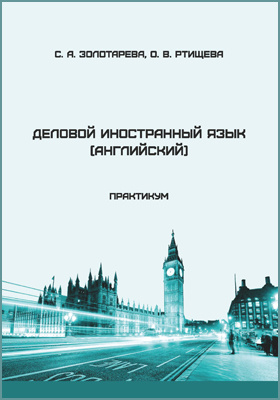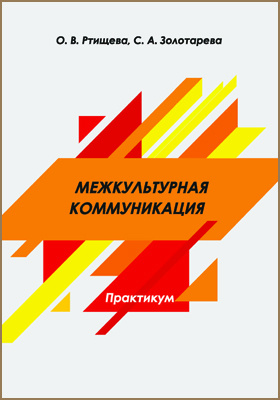Деловой иностранный язык (английский) : практикум для укрупненных групп направлений подготовки 51.00.00, 53.00.00, 54.00.00
Автор: Светлана Золотарева, Оксана Ртищева
Форматы: PDF
Издательство: Кемеровский государственный институт культуры (КемГИК)
Год: 2020
Место издания: Кемерово
ISBN: 978-5-8154-0544-8
Страниц: 142
Артикул: 100254
Возрастная маркировка: 16+
Краткая аннотация книги "Деловой иностранный язык (английский)"
Практикум по дисциплине «Деловой иностранный язык (английский)» направлен на формирование у магистранта способности и готовности к иноязычной профессиональной деловой коммуникации. В практикум включены описания практических занятий, посвященные развитию навыков письменной и устной речи обучающихся в ситуации профессионального общения, методические указания по выполнению практических заданий, справочные материалы, тестовые задания, задания для самостоятельного выполнения, список литературы, список ключевых слов и другие материалы, способствующие организации самостоятельной работы обучающихся в процессе подготовки к практическим занятиям по ключевым темам изучаемой дисциплины.
Содержание книги "Деловой иностранный язык (английский)"
Введение
1. МЕТОДИЧЕСКИЕ УКАЗАНИЯ ПО ВЫПОЛНЕНИЮ ПРАКТИЧЕСКИХ ЗАДАНИЙ
1.1. Общие методические указания по выполнению практических заданий
1.2. Методические указания по выполнению практических заданий инвалидами и лицами с ограниченными возможностями здоровья
2. ОПИСАНИЕ ПРАКТИЧЕСКИХ ЗАНЯТИЙ ПО РАЗДЕЛУ «ЛЕКСИКА»
3. ОПИСАНИЕ ПРАКТИЧЕСКИХ ЗАНЯТИЙ ПО РАЗДЕЛУ «ЧТЕНИЕ»
4. ОПИСАНИЕ ПРАКТИЧЕСКИХ ЗАНЯТИЙ ПО РАЗДЕЛУ «ГРАММАТИКА»
5. ОПИСАНИЕ ПРАКТИЧЕСКИХ ЗАНЯТИЙ ПО РАЗДЕЛУ «ПИСЬМО»
Заключение
Список ключевых слов
Список литературы
Все отзывы о книге Деловой иностранный язык (английский) : практикум для укрупненных групп направлений подготовки 51.00.00, 53.00.00, 54.00.00
Отрывок из книги Деловой иностранный язык (английский) : практикум для укрупненных групп направлений подготовки 51.00.00, 53.00.00, 54.00.00
40 Marx. Even though none of these three men was particularly religious, the power that religion holds over people and societies interested them all. They believed that religion is essentially an illusion; because culture and location influence religion to such a degree, the idea that religion presents a fundamental truth of existence seemed rather improbable to them. They also speculated that, in time, the appeal and influence of religion on the modern mind would lessen. Durkheim and functionalism Emile Durkheim, the founder of functionalism, spent much of his academic career studying religions, especially those of small societies. The totetism, or primitive kinship system of Australian aborigines as an “elementary” form of religion, primarily interested him. This research formed the basis of Durkheim’s 1921 book, The Elementary Forms of the Religious Life, which is certainly the best known study on the sociology of religion. Durkheim viewed religion within the context of the entire society and acknowledged its place in influencing the thinking and behavior of the members of society. Durkheim found that people tend to separate religious symbols, objects, and rituals, which are sacred, from the daily symbols, objects, and routines of existence referred to as the profane. Sacred objects are often believed to have divine properties that separate them from profane objects. Even in more advanced cultures, people still view sacred objects with a sense of reverence and awe, even if they do not believe that the objects have some special power. Durkheim also argued that religion never concerns only belief, but also encompasses regular rituals and ceremonies on the part of a group of believers, who then develop and strengthen a sense of group solidarity. Rituals are necessary to bind together the members of a religious group, and they allow individuals to escape fr...
С книгой "Деловой иностранный язык (английский)" читают



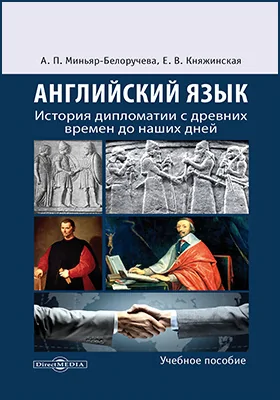
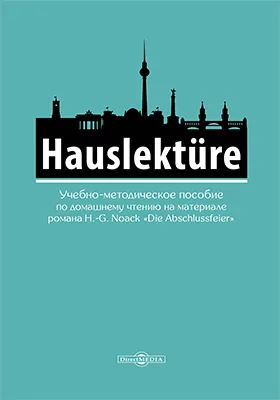





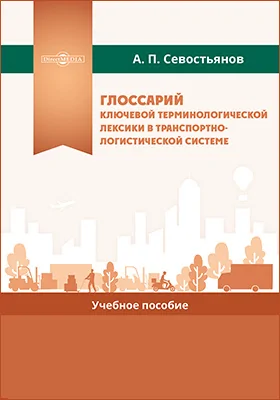
Бестселлеры нон-фикшн






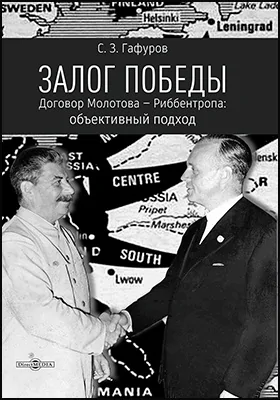






Новинки книги нон-фикшн

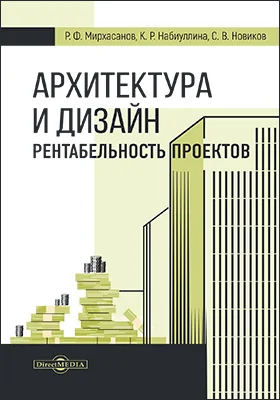
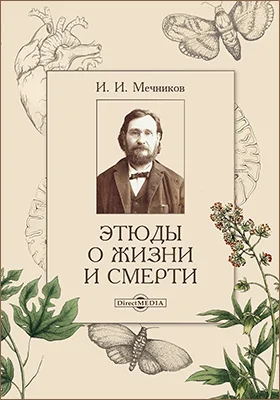

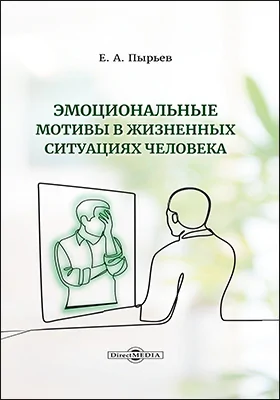








и мы свяжемся с вами в течение 15 минут
за оставленную заявку

